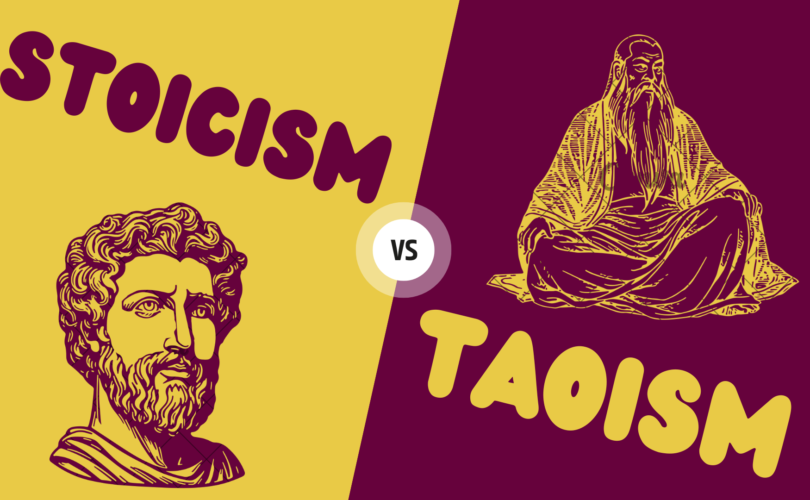Taoism and Stoicism, despite originating from opposite ends of the Globe, share some surprising similarities in their approaches to living a good life. Here are some key areas where they share:
- Focus on Virtue: Both philosophies emphasize the importance of cultivating virtues like wisdom, justice, courage, temperance, and simplicity. These qualities are seen as essential for living a meaningful and flourishing life.
- Reason and Emotion: Both advocate for using reason to navigate the world but acknowledge the role of emotions. Stoics believe in managing emotions to avoid being ruled by them, while Taoists aim to live in harmony with their emotions.
- Acceptance of what you can’t control: A core principle in both is accepting what is outside your control. Stoicism focuses on focusing on your thoughts and actions, which you can control, and letting go of external events. Taoism emphasizes living in accordance with the natural order (the Tao) and avoiding forcing things.
- Living in Harmony: Both philosophies aim to achieve a state of inner peace and harmony. Stoicism seeks this through reason and acceptance, while Taoism emphasizes living in accordance with the natural flow of the universe.
Meanwhile there are also some key differences:
- Action vs. Inaction: Stoicism emphasizes taking action in accordance with virtue, while Taoism can have a more quietist or inaction-oriented approach, focusing on flowing with the natural order.
- Focus on the Self: Stoicism places more emphasis on individual reason and judgment, while Taoism emphasizes living in harmony with the larger natural world.
Overall, both Taoism and Stoicism offer valuable guidance for navigating life’s challenges and cultivating inner peace. Their areas of similarity can be seen as complementary, offering different tools to achieve a similar goal.
Following two channels are what I’ve been reading daily, Tao and Stoic.







